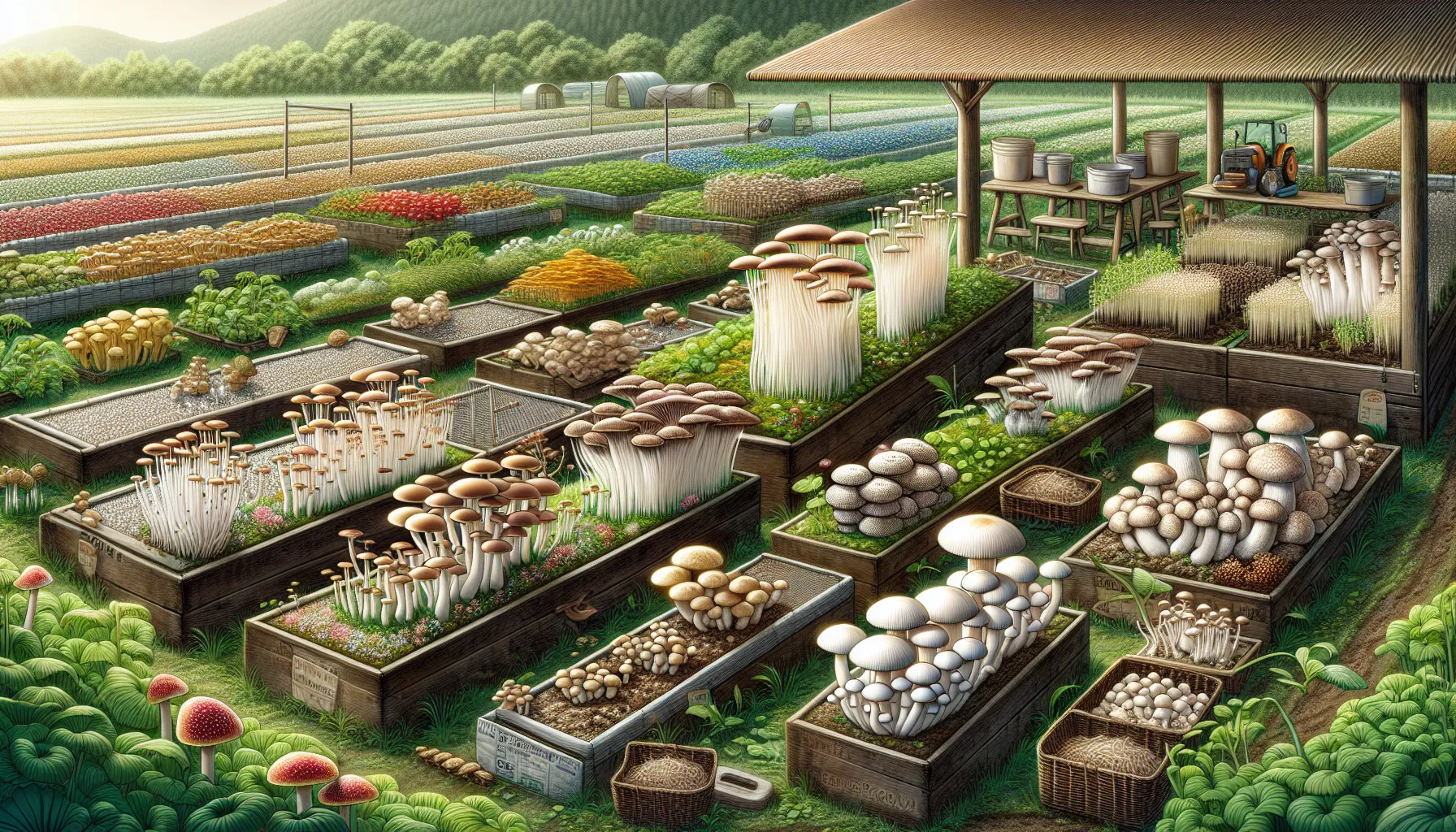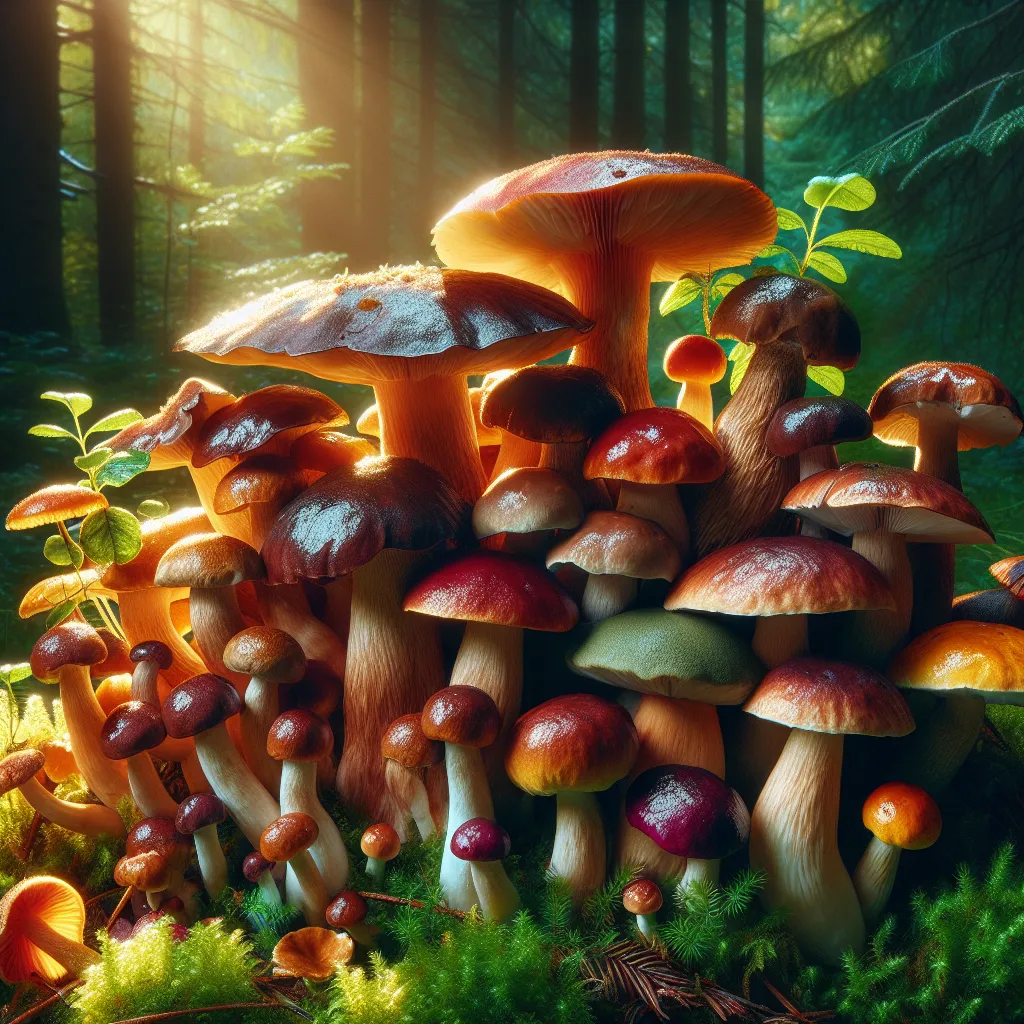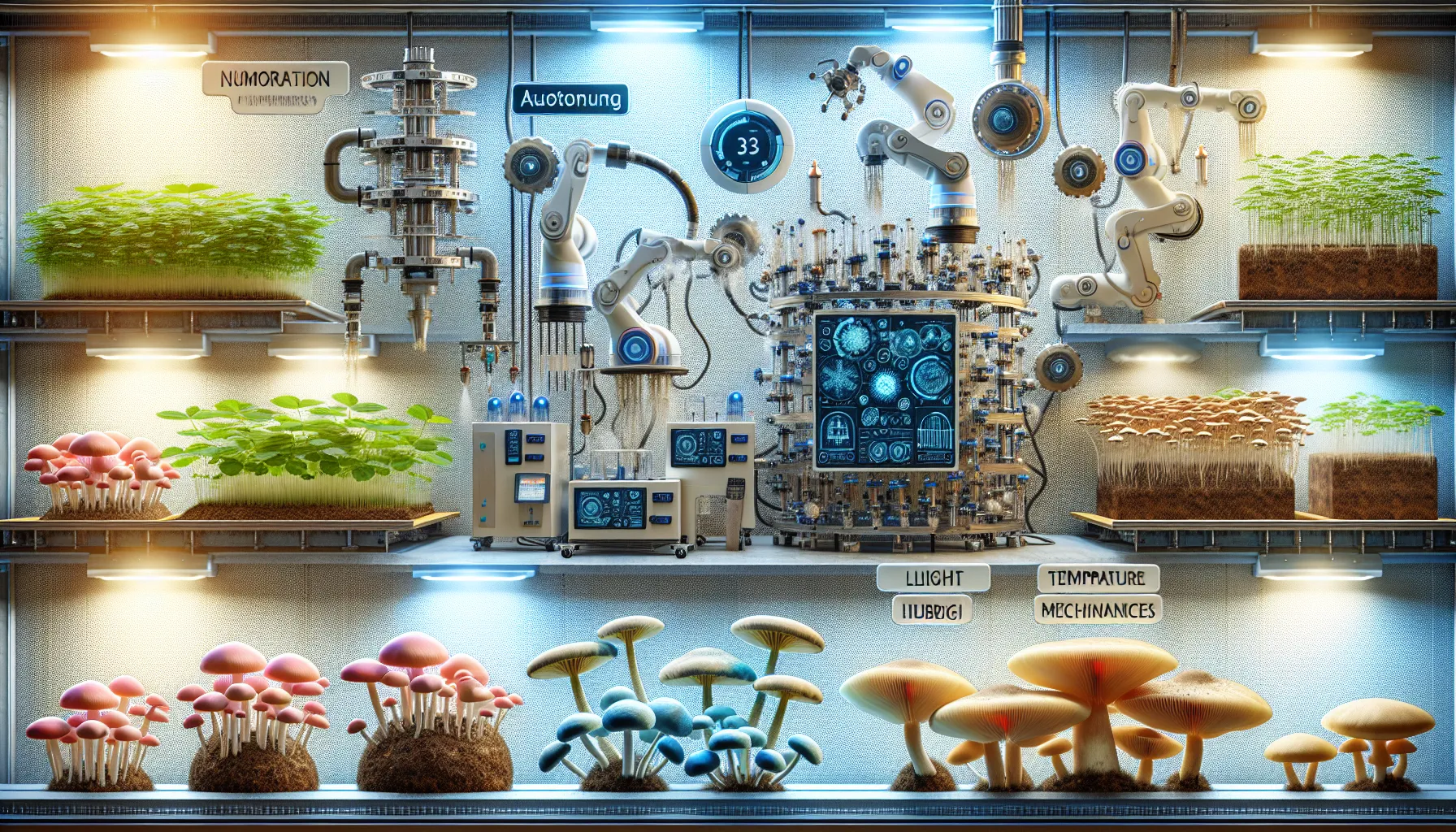The global food system is encountering an unprecedented challenge: feeding a growing population while minimizing its environmental footprint. As the search for sustainable food production intensifies, mushroom farming emerges as a promising solution. This article delves into the world of mushroom cultivation, showcasing its benefits for both food security and environmental sustainability, and provides insights into how it can be integrated into our daily lives.
The Rise of Mushroom Cultivation
Mushrooms are a versatile and nutritious food source that have been gathered and consumed for centuries. However, it is only in recent decades that mushroom farming has developed into a sophisticated and scalable agricultural practice, instead of just its limited foraged status of the past. This growth is driven by several factors, not least the increasing recognition of mushrooms’ health benefits, which include high levels of vitamins, minerals, and antioxidants, as well as their low calorie and fat content.
Mushrooms are also unique in their ability to grow on substrates that would otherwise be considered waste, such as sawdust, straw, or coffee grounds. This efficient use of resources is a cornerstone of sustainable agriculture and positions mushroom farming as an eco-friendly food production system.

Environmental Advantages of Mushroom Farming
One of the most compelling aspects of mushroom farming is its minimal environmental impact compared to traditional agriculture. The following points highlight the environmental advantages of mushroom cultivation:
- Low Space Requirement: Mushrooms can be grown in vertical farming setups, which significantly reduces the amount of land needed. This is particularly valuable as agricultural land becomes increasingly scarce.
- Water Conservation: Mushroom cultivation requires significantly less water than conventional crops. This conservation of water resources is critical in the face of global water scarcity.
- Carbon Footprint Reduction: As mushrooms grow on organic waste, they help in reducing the carbon footprint by decomposing the material and sequestering carbon in the process.
- Bioremediation: Some mushroom species have the ability to break down environmental pollutants, restoring the health of ecosystems.
These environmental benefits make mushroom farming an attractive option for sustainable agriculture practices.
Efficient Resource Utilization
Mushrooms have a remarkable ability to convert substrates into nutritious food effectively. This process, known as bioconversion, involves the breakdown of organic matter by the mushroom mycelium. The efficiency of this process means that mushrooms can be produced in large quantities without the need for chemical fertilizers or pesticides, which are often associated with environmental degradation.
The Economic Viability of Mushroom Farming
Mushroom cultivation is not only environmentally sustainable but also economically viable. Low startup costs and the ability to utilize waste products as substrates make it accessible to many farmers, including those in developing countries. Moreover, the growing market for mushrooms presents significant economic opportunities.

High-Quality Resources for Mushroom Cultivation
For those interested in delving deeper into the practice of mushroom farming, there are several high-quality resources available online. Here are a few niche resources that provide specialized information on the subject:
- Mushroom Council: This organization offers a wealth of information on mushroom varieties, health benefits, and recipes, helping to promote the consumption and cultivation of mushrooms.
- Fungi Perfecti: Focused on mushroom cultivation, this resource provides supplies, kits, and in-depth guides for both novice and experienced growers.
- Mycological Society: A community dedicated to the study of mushrooms, offering resources on mushroom identification, foraging, and conservation efforts.
Challenges and Solutions in Mushroom Farming
While mushroom farming is sustainable and economically viable, it is not without its challenges. Cultivators must maintain specific environmental conditions, such as humidity and temperature, to ensure optimal mushroom growth. Pests and diseases can also pose a threat, though these risks can be mitigated with proper hygiene and management practices.
Innovations in technology and cultivation techniques continue to address these challenges, making mushroom farming more efficient and productive. For example, the use of climate-controlled environments can help to maintain the perfect growing conditions, while research into mushroom genetics may lead to more resilient strains.
The Role of Technology and Innovation
Advancements in technology are making mushroom farming more accessible and efficient. Automated systems for climate control, irrigation, and harvesting are reducing labor costs and increasing yields. Additionally, innovative packaging and preservation methods are extending the shelf life of mushrooms, reducing waste and enhancing their marketability.

The Future of Food: Integrating Mushrooms into Our Diets
As the evidence for the environmental and health benefits of mushrooms continues to grow, so does their popularity. Integrating mushrooms into our diets is a simple yet profound way to promote sustainability. From meat substitutes to health supplements, mushrooms are becoming a staple in the conscious consumer’s pantry.
Conclusion
Mushroom farming represents a confluence of environmental stewardship, economic opportunity, and health consciousness. Its low impact on the planet, combined with the nutritional value of mushrooms, makes it an exemplary model of sustainable food production. As we continue to seek solutions for feeding the world’s population without depleting its resources, mushroom cultivation stands out as a beacon of hope.
By embracing mushroom farming and incorporating mushrooms into our diets, we can take significant steps toward a more sustainable and healthy future. Whether through supporting local mushroom farmers or starting a small cultivation project at home, each action contributes to a larger movement towards sustainability. As we move forward, let us consider the role that these remarkable fungi can play in shaping a better world.
